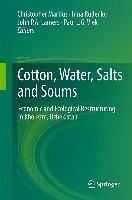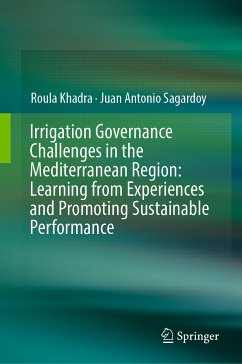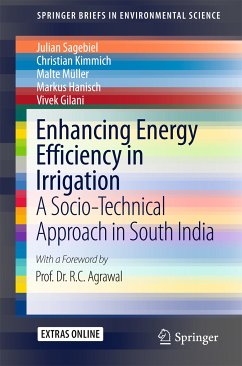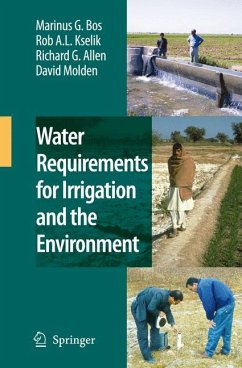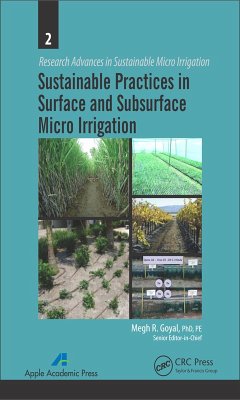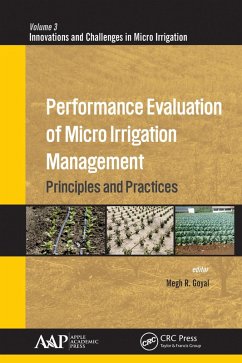
Micro Irrigation Systems in India (eBook, PDF)
Emergence, Status and Impacts
Redaktion: Viswanathan, P K; Narayanamoorthy, A.; Kumar, M. Dinesh
Versandkostenfrei!
Sofort per Download lieferbar
72,95 €
inkl. MwSt.
Weitere Ausgaben:

PAYBACK Punkte
36 °P sammeln!
This book takes stock of micro irrigation systems (MIS), the technological intervention in India's agricultural and water management sectors, over the past couple of decades. Based on empirical research from the major agriculturally dynamic states, viz., Gujarat, Rajasthan, Maharashtra, Tamil Nadu, Andhra Pradesh and Karnataka, the book provides a nuanced understanding and objective assessment of the implementation and adoption of MIS across these states. It addresses several of the questions related to adoption and impacts of MIS in India. On the adoption side, the key question that the book ...
This book takes stock of micro irrigation systems (MIS), the technological intervention in India's agricultural and water management sectors, over the past couple of decades. Based on empirical research from the major agriculturally dynamic states, viz., Gujarat, Rajasthan, Maharashtra, Tamil Nadu, Andhra Pradesh and Karnataka, the book provides a nuanced understanding and objective assessment of the implementation and adoption of MIS across these states. It addresses several of the questions related to adoption and impacts of MIS in India. On the adoption side, the key question that the book addresses is which segment of the farming community adopts MIS across states? The impacts analysed include those on physical, agronomic and economic aspects. At the macro level, the question being asked is about the future potential of MIS in terms of saving water from agriculture and making more water available for environment. The book also addresses the question of the positive/negative externalities and real social benefits and costs from the use of MIS, a major justification for heavy capital subsidies for its purchase by farmers. It also brings out certain critical concerns pertaining to MIS adoption, which need to be addressed through more empirical research based on longitudinal panel/ cross sectional data. The book would be of great use to researchers (agricultural water management, irrigation economics), students of water resource engineering, irrigation engineering and water resources management, as well as to policy makers and agricultural water management experts - national and international.
Dieser Download kann aus rechtlichen Gründen nur mit Rechnungsadresse in A, B, BG, CY, CZ, D, DK, EW, E, FIN, F, GR, HR, H, IRL, I, LT, L, LR, M, NL, PL, P, R, S, SLO, SK ausgeliefert werden.




